Something has changed with Dominik Szoboszlai this season, with the Liverpool midfielder losing his threat from range. So what has happened to his shooting?
The main story of Liverpool’s recent 2-0 win over Aston Villa was the Reds going five points clear at the top of the league.
But also of note was an absentee from the starting lineup: Dominik Szoboszlai.
He had announced himself for the club in this fixture a year prior, scoring a superb long-range strike that reminded many of a certain previous Liverpool No. 8.
Fast-forward to now, and those long-range strikes have disappeared. Szoboszlai is goalless in the league this season, with Curtis Jones pushing to start in his place.
Arne Slot has gone on record saying: “For an attacking midfielder at Liverpool, his numbers need to go up.”
So what’s going on with Szoboszlai in front of goal?
Cracking debut
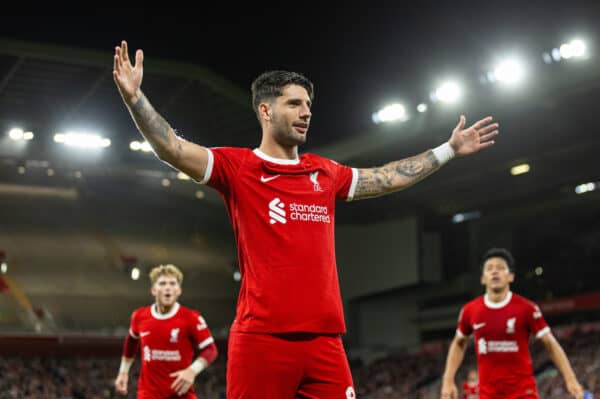
Like a barnstorming debut album, Szoboszlai’s first season was well-received at Anfield. His hard running and long-range stunners revitalised a tired midfield beat and got the people off their feet.
Forty-three of his 60 shots in total came from outside the area, highlighting his proclivity to shoot from range.
Yet despite some screamers in the cup competitions, that Villa effort was his only long-range goal in the league all season.
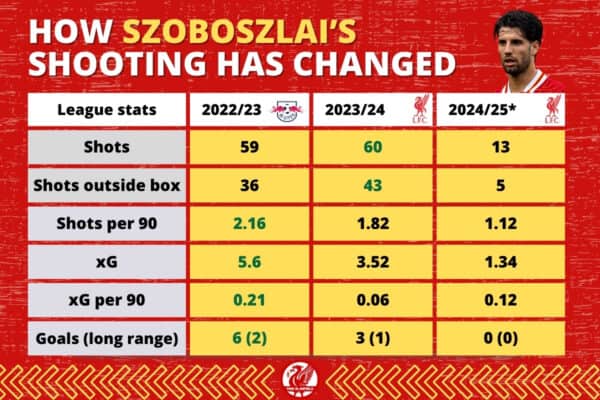
Under new management, Szoboszlai is now shooting less often and closer to goal, with the quality of his chances being noticeably higher.
This shift is not unique to him. Last season, Liverpool were coached to “play the first pass forwards.” This squeezed the opposition back and invited more shots from long range.
There were some fantastic goals and moments as a result. But it was unsustainable across the season: Liverpool were second bottom of the league for xG versus goals scored – netting 80 goals from an xG of 87.8.
Despite creating a high volume of chances, the relative quality of said chances were low, and it proved costly.
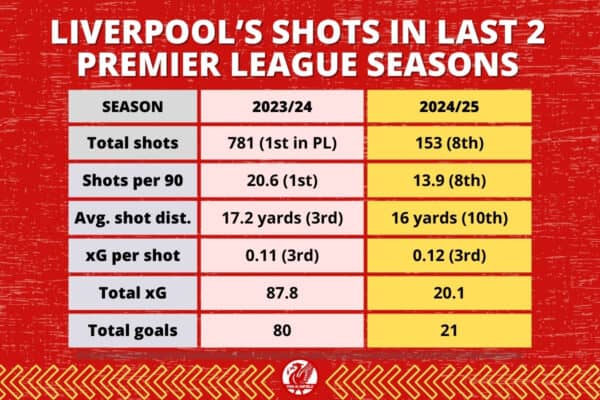
Under Slot, Liverpool are now more likely to keep the ball longer and wait until the decisive forward pass becomes available. This invites pressure from the opposition, opening up gaps in the final third for the forwards to exploit.
As a result, Liverpool are taking fewer shots, but from closer to the goal, resulting in more sustainable scoring in line with expected goals.
So far this has been great for Liverpool, but it’s yet to translate into a Premier League goal for Szoboszlai. Why is that?
Evolving the sound
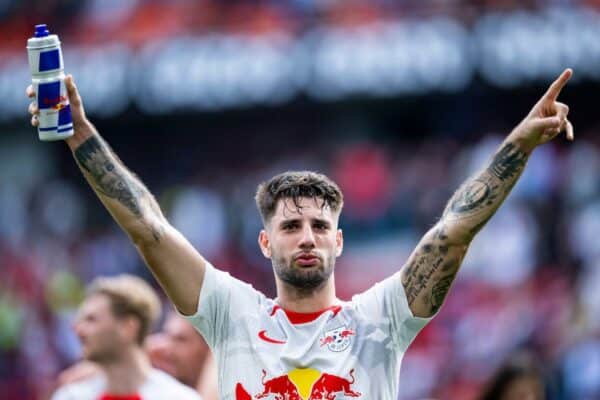
Szoboszlai’s exploits from distance were little surprise to those who followed him in the Bundesliga.
In his final two seasons at RB Leipzig he took 102 attempts on goal, with 62 of them coming from outside the box. However, these strikes yielded just three goals.
Slot’s vision for him is less thrilling, but it does make a lot of sense. He’s tall, strong, quick and intelligent – able to support the midfield against the ball, either by leading the press in a 4-4-2 shape or dropping off to track runners.
But also, having him function as a second striker means he can drift into space on the attack before storming into the box late and finishing chances.
We saw a glimpse of this in the opening game against Ipswich. Here, he finds into a pocket of space with the ball out wide.
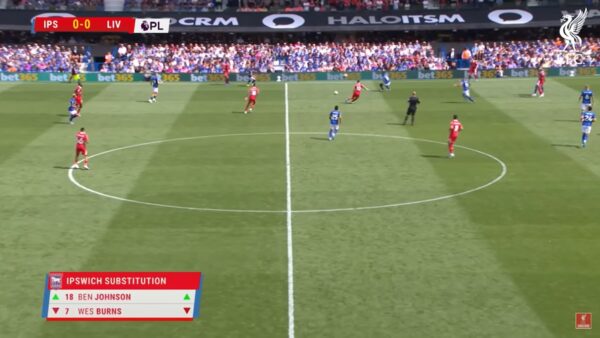
This allows him to lose his marker, but also be ready to defend the counter if Ipswich won the ball. Instead, Liverpool break, and he turns on the gas.
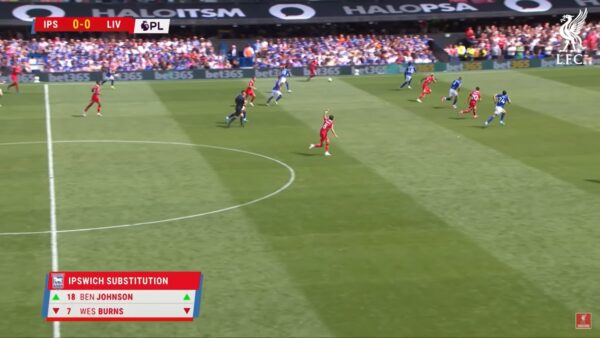
He gestures to receive the ball…
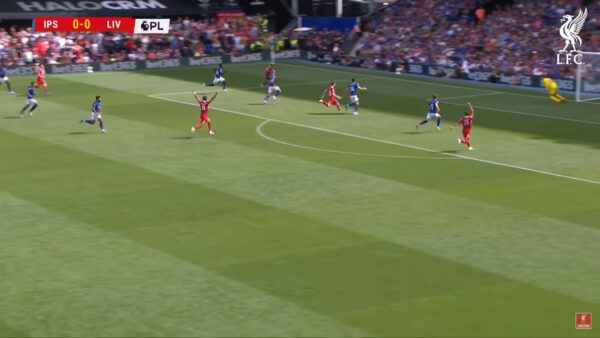
…but strikes it against his own teammate.
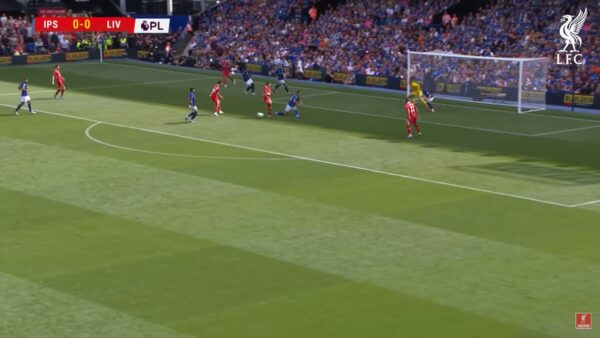
Another example came in the narrow win over Wolves. As the attack pours forwards, he pushes up to the last line alongside the striker.
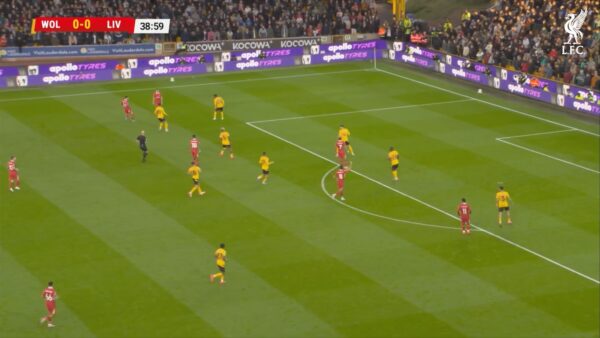
But the ball never comes. He drops off, finding his space again, until the ball is worked wide a second time. This time, the cross comes in, and he’s ready…
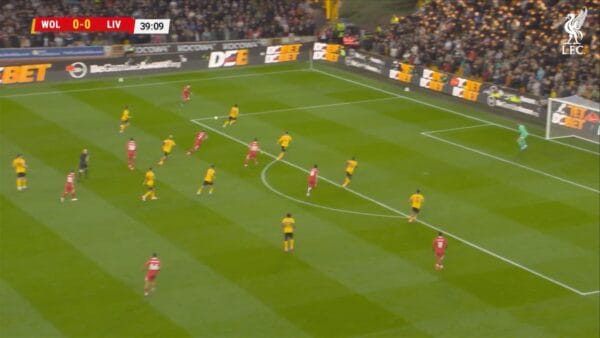
…only to fire it against goalkeeper Sam Johnstone from point-blank range.
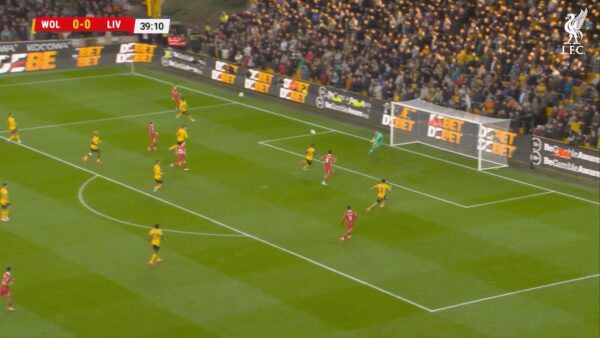
His smart movement and athleticism allow him to get into these high-value positions. With a little more composure, these chances will become goals – eventually.
Early verdict
Szoboszlai did find the net in the Champions League, scoring Liverpool’s third against AC Milan.
It’s a similar situation: with his team breaking down the flank in space, Szoboszlai comes hurtling into the box.
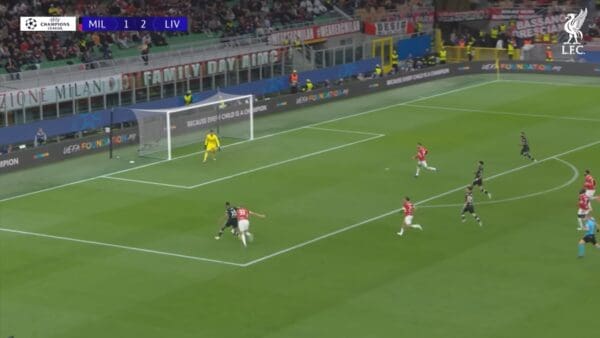
But on this occasion, he stutters just one step…
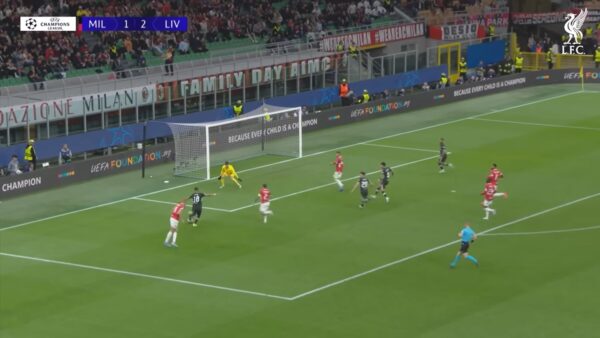
…delaying his arrival by half a second. It buys him a tiny bit more space when the ball comes in…
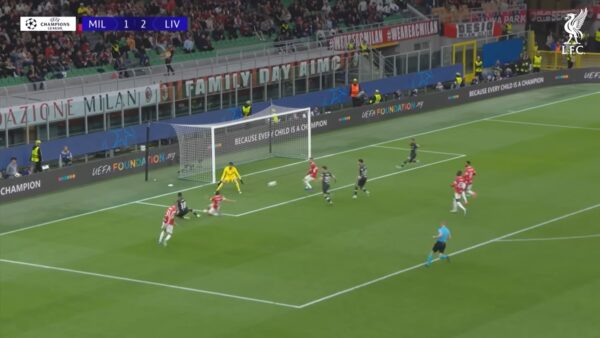
…and allows him to convert.
This kind of intelligent movement shows he’s growing into his role. Getting into these positions is the hard part – over time, the goals are likely to follow.
It’s also worth pointing out that Szoboszlai gets through an incredible amount of work off the ball, too.
Like he did against Ipswich, he must drop off as attacks develop to find space. But this also means he’s set to track back if the opponent is able to win the ball and counter.
As Szoboszlai said himself: “I can score more goals, I can give more assists, but I am doing the ‘dirty job’ as well for the team and that is the most important thing to me. While we are top of the league and I don’t score any goals, I’ll take it.”
While those long-range bangers created some hits on his debut record, Szoboszlai’s redeployment as a second striker is generating more consistent, more valuable chances.
Once those translate into goals, it should see his more mature second album achieve even greater success.
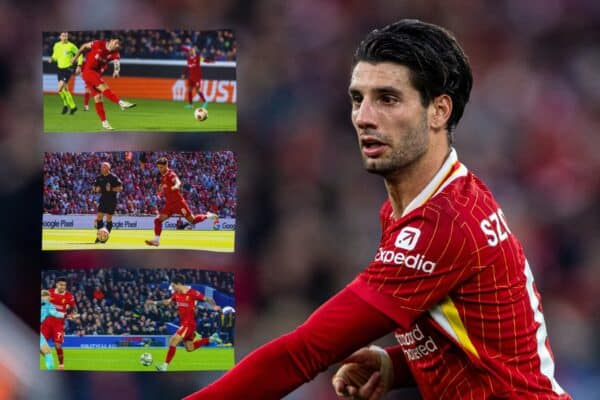





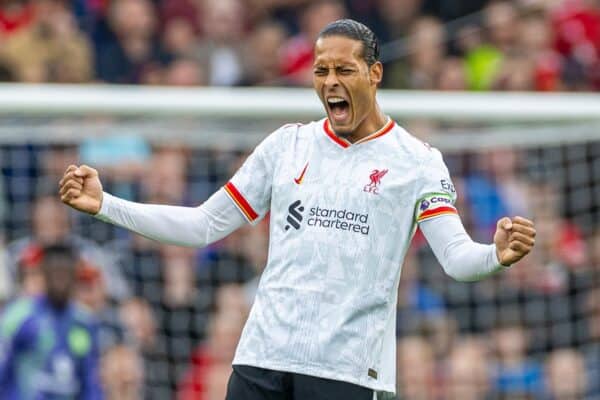
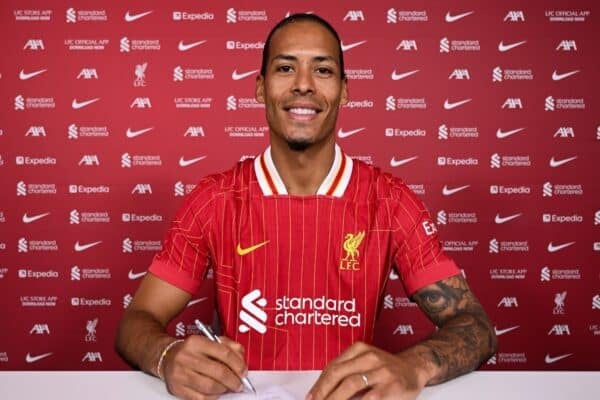

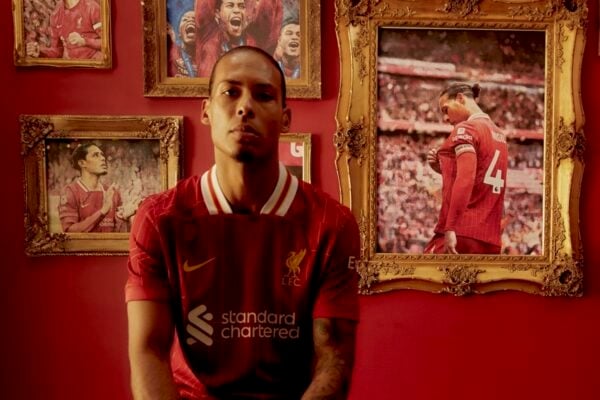

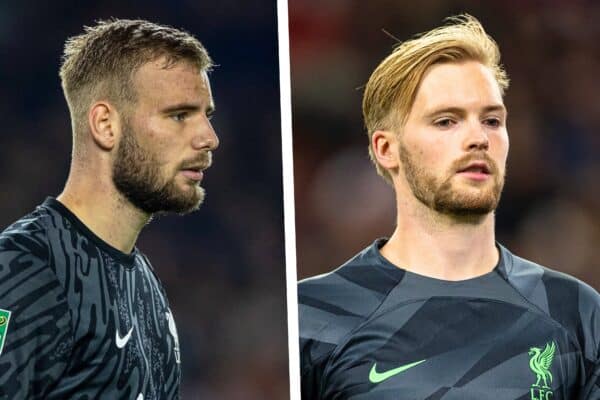
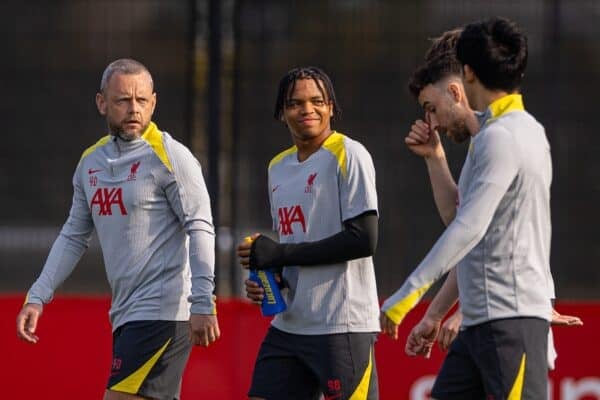
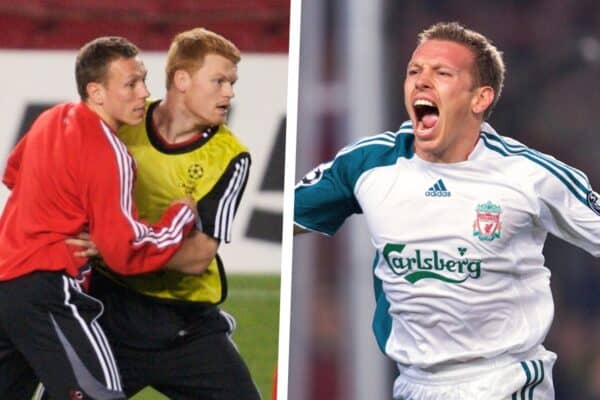


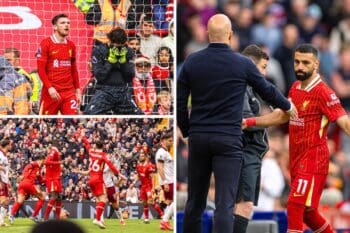

Fan Comments